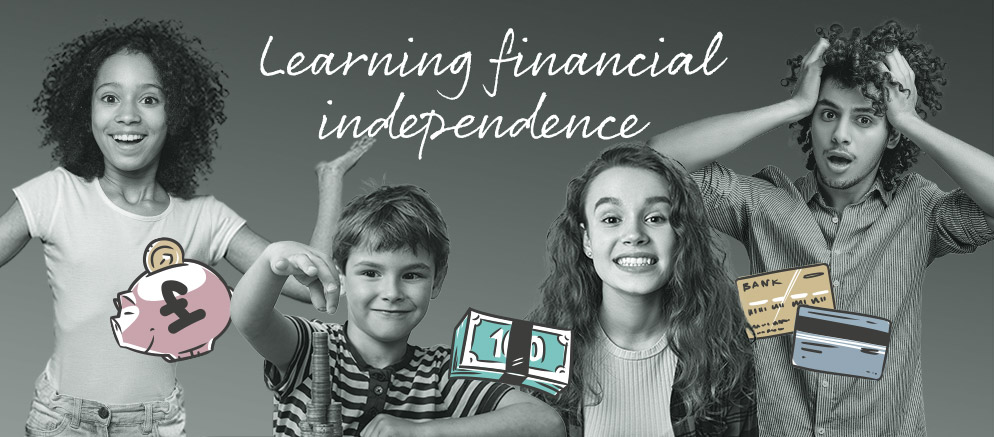-
Online Service update. Due to planned essential maintenance, our Online Service will be unavailable between 10:00pm on Wednesday 23 July until 07:00am on Thursday 24 July. We apologise for any inconvenience this may cause.

Money guides for children
From learning what money is, to how to save and budget and the different ways of borrowing, our useful guides can help your children or grandchildren learn to handle money with confidence.Children and young people encounter money earlier and earlier. We believe it’s really important for young people to have the knowledge, skills and confidence to manage their finances well.
With this in mind we've worked together with Young Money, a charity that provides inspiring resources for teaching young people money management skills, to create a series of money guides. These will help your children learn about managing money and personal finance, the concept of bank and savings accounts, value for money plus the complex topics of credit, budgeting and foreign currency.
As parents, grandparents and carers of our children, we all want to build the best future for them. With many families opting to set up children’s savings and bank accounts, why not take the opportunity to help them learn about money in a fun and engaging way? Our guides are full of great tips and fun activities for children of all ages.
We'd love to hear your thoughts
Complete our survey and we'll donate £10 to Epsom & Ewell foodbank

Age 5-7
What is money?
We use money every day, so being able to manage it is a vital skill.
What is money? will help your child learn to recognise coins and notes and understand their value, as a starting point to managing their own money, and potentially their own children's savings account.
How should I look after my money?
We all need to know how to keep our money safe, even if it’s just pocket money.
How should I look after my money? will help your child learn the basics of looking after their money. Children love seeing things grow, and understanding money and their savings is a big part of learning.
Age 7-11
Budgeting basics
Budgeting is an important skill to keep control of our spending.
Budgeting basics will help your child to learn to keep track of their money, plan a basic budget and prioritise their spending.
Getting the savings habit
What we want isn't always what we need, and knowing the difference can help to make better money decisions.
Getting the savings habit will help your child to appreciate where money goes, and challenge them to save towards their own goal.
Age 11-14
Savvy shopper
We all want to make our money stretch as far as possible and get the best value for money that we can.
Savvy shopper will help your child to think about their spending choices and learn ways to make the most of what they have.
Foreign currency
Understanding how money works in other countries is a great way to to appreciate the role of money and its value.
Foreign currency will help your child to decide when and where to exchange money to get the best value.
Age 14-16
Staying safe with money online
With mobile banking apps, online banking and internet shopping it's becoming increasingly important to stay safe in the digital world of money.
Staying safe with money online will help your child to learn to recognise risky money situations.
Better budgeting - preparing for independence
One of the most important skills in learning how to manage money is budgeting.
Better budgeting - preparing for independence will help your child to manage the costs of day-to-day living prioritise their spending.
Age 16-18
Saving for the future
As your child become financially independent there’ll be a lot of demands on their money.
Saving for the future will help them to understand the saving decisions they might need to make for the short-term and how to save for longer-term goals.
Borrowing and credit need to knows
We live in a very consumer-orientated society where we can easily be persuaded to spend money.
Borrowing and credit need to knows will help your child to work out their attitudes to borrowing and credit, and learn about the different types of borrowing and credit.
